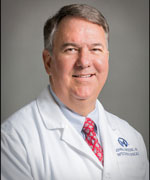Taking a Closer Look at Cancer Drug Claimed to Reduce COVID Deaths
A drug developed for treating patients with prostate cancer is making headlines for its potential ability to reduce COVID-19 deaths. According to a study recently published in the New England Journal of Medicine’s Evidence digital magazine, patients who are at high risk of severe disease had lower death rates when taking sabizabulin. Drugmaker Veru submitted an emergency use authorization request to the U.S. Food and Drug Administration in June.
The study looked at 130 hospitalized adults with an underlying condition that put them at risk of severe COVID-19. Results show that 20% of the patients who took sabizabulin died, while 45% of patients who received a placebo died.
This interim analysis examines a phase 3 RCT of the orally available novel microtubule disruptor sabizabulin for severe Covid-19. Barnette et al. report a reduction in 60-day mortality from 45.1% to 20.2%. https://t.co/jkFe94OU4f#IDtwitter #ARDS #MedTwitter pic.twitter.com/GuWvylH5Cw
— NEJM Evidence (@NEJMEvidence) July 6, 2022
While the lower mortality rates appear impressive at first glance, Dr. John Greene, chair of the Infectious Diseases Program at Moffitt Cancer Center, urges caution before celebrating a pharmaceutical breakthrough.

Dr. John Greene, Infectious Diseases Program
“A lot of companies have come out with claims of great benefits with charts and curves looking quite impressive,” said Greene. “When you look at these life-saving survival graphs, it looks like a giant separation from placebo vs. patients taking the drug, but the difference appears larger than it really is. In this study, the placebo group was predicted to have a mortality rate of 30%, so if you see the medication brings that down to 15-20% then you could say it works. But when the placebo group comes in at 45% mortality, which is higher than expected, that becomes an interesting outlier.
“When you look at the risk factors of the patients studied, many of them had hypertension and obesity,” said Greene. “But the percentages don’t exactly match up in placebo patients vs. treatment patients. People who were severely ill were also excluded from the study. In reality they were looking at patients with mild to moderate illness.”
Cost is also a factor, according to Greene.
“This drug is ultra-expensive because it’s used in a very narrow niche,” said Greene. “The U.S. can afford it, but many other countries can’t. You have this expensive drug that many people are never going to use.”
While the notion of a drug that can prevent deaths from COVID is an exciting one, it’s important to remember that anyone experiencing symptoms will not be able to simply pick up the phone and call their doctor in hopes of getting a prescription.
“It’s for a very select group of people,” said Greene. “You’re talking about a very narrow group of people in the hospital who are mild to moderately ill. I don’t really see a large group of clinicians who think this is the new Paxlovid where everybody can get it, but it does have some promise.”



